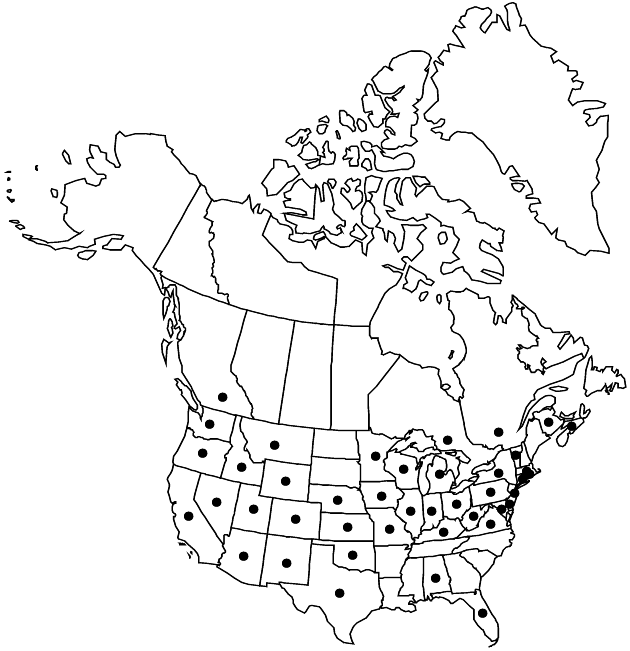Difference between revisions of "Onopordum acanthium subsp. acanthium"
imported>Volume Importer |
imported>Volume Importer |
||
| Line 51: | Line 51: | ||
|publication year= | |publication year= | ||
|special status=Weedy;Introduced | |special status=Weedy;Introduced | ||
| − | |source xml=https:// | + | |source xml=https://bitbucket.org/aafc-mbb/fna-data-curation/src/2e0870ddd59836b60bcf96646a41e87ea5a5943a/coarse_grained_fna_xml/V19-20-21/V19_36.xml |
|tribe=Asteraceae tribe Cardueae | |tribe=Asteraceae tribe Cardueae | ||
|genus=Onopordum | |genus=Onopordum | ||
Latest revision as of 20:51, 5 November 2020
Plants 50–400 cm, herbage canescent-tomentose throughout or ± glabrescent. Stems appressed-hairy; wings to 15 mm wide. Leaves 10–60 cm, margins dentate to shallowly pinnatifid, lobes 8–10 pairs, broadly triangular, densely tomentose, especially on abaxial faces. Heads mostly in clusters of 2–3, at tips of branches. Involucres ± spheric, 20 mm diam. (excluding spines), bases truncate to concave. Phyllaries linear, bases 2–2.5 mm wide, puberulent, ± cobwebby-tomentose, spines to 6 mm, adaxially glabrous. Corollas purple or white, 22–25 mm, lobes glabrous. Cypselae 4–5 mm, transversely roughened; pappi of many pink to reddish, minutely barbed bristles 7–9 mm. 2n = 34.
Phenology: Flowering summer (Jun–Sep).
Habitat: Grasslands, woodlands, riparian areas, deserts, disturbed ground, roadsides
Elevation: 0–2200 m
Distribution

Introduced; B.C., N.B., N.S., Ont., Que., Ala., Ariz., Calif., Colo., Conn., Del., Fla., Idaho, Ill., Ind., Iowa, Kans., Ky., Md., Mass., Mich., Minn., Mo., Mont., Nebr., Nev., N.J., N.Mex., N.Y., Ohio, Okla., Oreg., Pa., R.I., Tex., Utah, Vt., Va., Wash., W.Va., Wis., Wyo., Eurasia, introduced in Australia.
Discussion
Scotch thistle is the national emblem of Scotland. Although it is sometimes cultivated as an ornamental, Scotch thistle is considered to be a noxious weed both in Canada and the United States. Infestations severely degrade rangelands, and dense stands are practically impenetrable because of the spiny nature and large size of the plant. This species has also invaded rangelands in Australia.
Selected References
None.